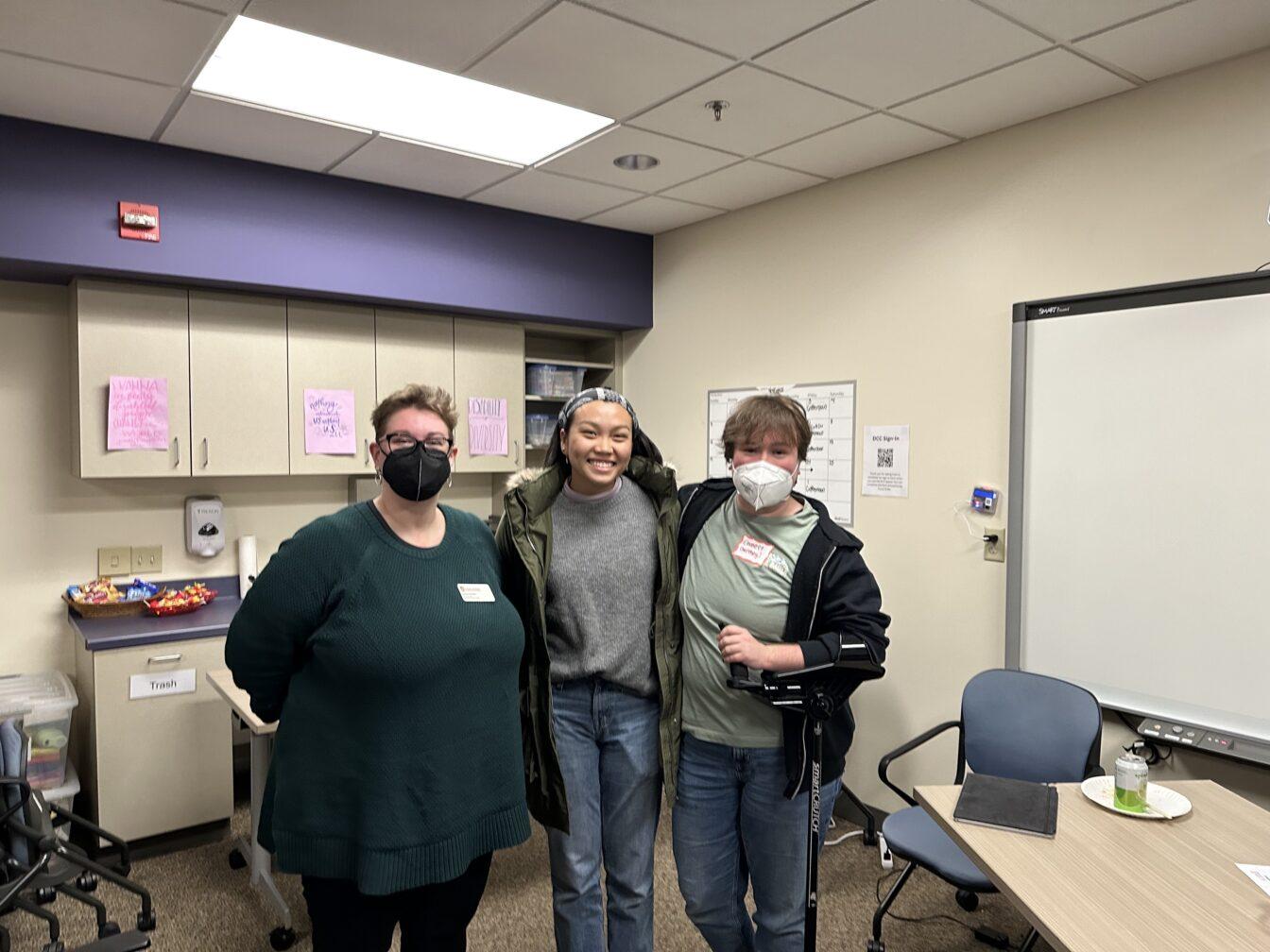Tuesday Nov. 28, the Disability Cultural Center and the Office of Sustainability hosted an “Access to the Environment” panel, which aimed to discuss the intersectionality of disability climate justice and sustainability.
The panel consisted of five people — Equity and Inclusion Chair for the Associated Students of Madison Emmet Lockwood, Disability Cultural Center Program Coordinator Helen Rottier, Interim Director for the Lakeshore Nature Preserve Laura Wyatt, University of Wisconsin Director of Transportation Services Patrick Kass and the Facilities Access Specialist for UW Facilities Planning and Management Top Tantivat.
Each panelist spoke about how accommodations and disabilities are a part of their work. For instance, Rottier talked about the creation of the DCC and what disability culture is.
“Some examples of disability culture come through in visual art, dance, music, books, podcasts, sports activism, scholarship, social media, community and more,” Rottier said. “I also want to talk briefly about ableism. Ableism is the oppressive system that values proximity to an idea or ideal of an abledness and devalues disability or perceived disability. We say an idea or ideal of abledness because no one reaches that perfectly abled state. Everyone has limitations in their body and mind.”
Wyatt presented the future of the Lakeshore Nature Preserve. This property, which consists of 300 acres of land next to the UW campus, stretches from the Limnology Lab near Memorial Union to Wally Bauman Woods, next to the Village of Shorewood Hills, according to the Lakeshore Nature Preserve website.
The master plan for the Lakeshore Nature Preserve included a number of accommodations for those with disabilities, including a building within the preserve.
The building will house vehicles to help move people around, including those in wheelchairs and will also have a flush toilet bathroom. At the moment, the restrooms on the preserve are pit toilets, so there is a step required to get to the bathroom. A flush toilet bathroom removed the need for an elevated bathroom, making it more accessible to those in wheelchairs.
UW gift guide suggests Badger gear, local goods for 2023 holiday season
The building will also have a viewing area that is accessible by elevator and ramp, to be able to view a larger part of the preserve. The preserve is also looking to get all-terrain wheelchairs from Access Ability Wisconsin, to allow people in wheelchairs to be able travel on all paths, promoting further inclusion and accessibility.
Kass spoke on transportation around campus for those with disabilities. UW Transportation Services supplies vans that will provide transportation for people with disabilities, all across campus, for free, Kass said. The vans currently serve about 11 to 15 students every day. He also gave some news about the 80 bus line across campus.
“I’m very happy to announce that possibly [by spring 2025], buses on the campus grounds will be electric,” Kass said. “We worked with the city to partner and get a federal grant for nine articulated electric buses. So not only will they be electric, but they’re about 50% bigger than the ones that we’re running right now.”
Tantivat works to make sure all buildings and sidewalks are accessible to all and also provides accommodations for those who need help with parking and mobility. Tanivat helps plan which sidewalks are plowed first and also has to coordinate with the City of Madison to make sure city plows don’t plow over shoveled sidewalks.
Lockwood works mainly with advocacy for disability rights on campus through coalitionary organizing. As Equity and Inclusion Chair for ASM, Lockwood works on promoting disability justice at UW Madison.
“Student activists have given so much to this university,” Lockwood said. “Between our ethnic studies program, between a lot of our sustainability work, [the DCC as well]. I had the huge privilege of being part of the coalition of 30 students that created [the DCC] space.”








